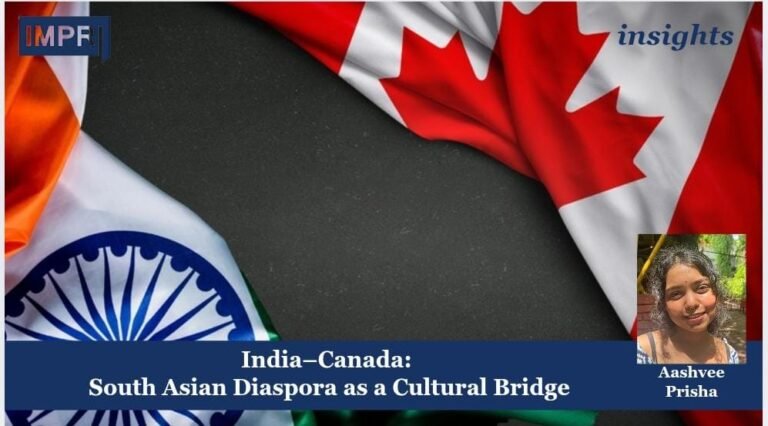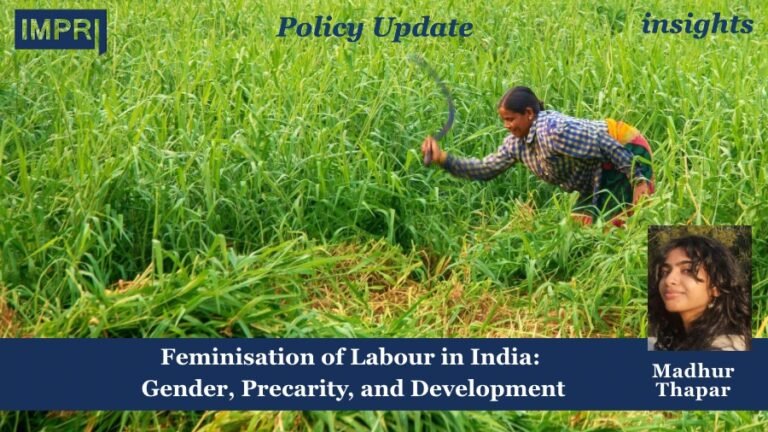Policy Update
Dipankar Mazumdar
Background
The Ministry of Tribal Affairs is a fundamental organization of the Indian government devoted to the advancement and well-being of the nation’s Scheduled Tribes (STs). It was set up in 1999 after the bifurcation from the Ministry of Social Justice and Empowerment. This ministry is essential to the development of policies and the execution of programs meant to enhance the socio-economic circumstances of indigenous communities.
The Ministry of Tribal Affairs was started after the understanding of the particular difficulties encountered by India’s tribal groups. These historically underprivileged groups have been denied access to economic, medical, and educational avenues. In order to rectify these disparities and guarantee that indigenous communities receive the support and priority that they are entitled to, the Ministry of Tribal Affairs was created.
Subjects allocated to the Ministry are as follows:
- Scheduled Tribes’ social insurance and social security.
- Encouragement and growth of non-profit initiatives for tribal welfare.
- Creation of Scheduled Areas and Scheduled Tribes.
- Supervision of ST Welfare Grants using the NITI Aayog structure and process.
- The National Commission for Scheduled Tribes, which works after –
a) Reporting on the welfare of Scheduled Tribes and the management of Scheduled Areas.
b) Directions for the creation and implementation of programs necessary for the welfare of Scheduled Tribes in any State.
Presently, the Ministry is headed by Shri Jual Oram with Shri Durgadas Uikey serving as the Minister of State.
Mandate
At its core, the primary mandate encompasses:
- Policy Formulation and Coordination: Designing and coordinating policies for the development of tribal communities.
- Implementation of Welfare Schemes: Executing various schemes aimed at improving the quality of life of STs.
- Monitoring and Evaluation: Assessing the effectiveness of implemented programs and ensuring accountability.
- Advocacy and Awareness: Promoting awareness about tribal issues and advocating for their rights at national and international forums.
Functioning
The Ministry’s programs and schemes are designed to fill important gaps in institutions and programs while considering STs’ circumstances. They aim to support and supplement the efforts of other Central Ministries, State Governments, and, to a lesser extent, voluntary organizations through financial assistance. All Central Ministries are primarily responsible for advancing the interests of Scheduled Tribes. Through carefully designed programs, the Ministry supports its efforts by implementing various developmental initiatives in vital areas. The Ministry of Tribal Affairs oversees the implementation of these programs, which primarily include State Governments and Union Territory Administrations, and focus on economic, educational, and social development through the establishment of institutions.
Working with state governments, tribal welfare departments, and other stakeholders, the Ministry of Tribal Affairs has a decentralized organizational structure. Important elements of how it operates include:
1. Tribal Research Institutes (TRIs): These organizations carry out studies to help guide policy choices.
2. Eklavya Model Residential Schools (EMRS): Offering indigenous youngsters an excellent education.
3. Van Dhan Vikas Kendras: These centers gather and process minor forest produce (MFP) to support sustainable lifestyles.
4. Scholarship Programs: Providing funding for indigenous kids’ education at different levels.
Performance
The government’s dedication to tribal welfare is demonstrated by the significant growth in MoTA’s budget allocation over time. For example, the budgetary allotment for 2023–2024 is ₹12,461.88 crore, which represents a substantial increase from ₹4,295.94 crore in 2013–2014. For tribal students, the Ministry of Tribal Welfare oversees five main scholarship programs:
1. Pre-Matric Scholarship: At a cost of ₹156.45 crore, 1,019,327 students benefited.
2. Post-Matric Scholarship: ₹1,387.11 crore was spent, and 2,194,182 students benefited.
3. National Fellowship: At a cost of ₹76.92 crore, 3,643 students received assistance.
4. Top Class Education: At a cost of ₹68.03 crore, 5,413 pupils received assistance.
5. Overseas Scholarship: ₹3.96 million was spent to support 44 students.
Initiatives and Schemes
1. Implementation of the Forest Rights Act: Tribal people have benefited from the Forest Rights Act’s recognition of their rights to forest land, which has resulted in the distribution of 23,43,009 land titles as of October 31, 2023, spanning around 1.81 crore acres.
2. Model Residential Schools in Eklavya (EMRS): The Ministry of Tribal Affairs has approved 728 EMRSs, 288 of which are now in service, to improve educational access. The goal of these schools is to give tribal pupils a high-quality education, and in the upcoming years, more than 38,000 teachers and other personnel will be hired.
3. PM-JANMAN (Pradhan Mantri Janjati Adivasi Nyaya Maha Abhiyan): Designed to support the growth of Particularly Vulnerable Tribal Groups (PVTGs), PM-JANMAN is a major program with a ₹24,000 crore overall budget. The program covers accommodation, health, schooling, water, and communication in 75 PVTGs throughout 18 states and one Union Territory. Projects of ₹7,356 crore had been approved by the beginning of 2024.
Impact
1. Socio-Economic Upliftment: The implementation of various schemes has led to tangible improvements in the living standards of tribal communities. The distribution of land titles has empowered tribal families, granting them ownership and control over forest resources. Educational initiatives like EMRSs have opened avenues for higher education and employment, reducing dropout rates among tribal students.
2. Health and Nutrition: The launch of the ‘Swasthya’ portal has provided a centralized platform to monitor the health and nutrition status of tribal populations. Initiatives like the National Sickle Cell Anaemia Elimination Programme aim to address prevalent health issues among tribals, with over 90 lakh individuals screened as of 2023.
3. Livelihood Enhancement: The Van Dhan Vikas Kendras have facilitated the collection and processing of MFP, creating sustainable livelihoods for tribal communities. These centers have also been instrumental in promoting entrepreneurship and self-reliance among tribals.
Issues and Challenges
Despite the progress, several challenges persist:
- Implementation Gaps: Disparities in the execution of schemes across states lead to uneven development.
- Awareness Deficits: Lack of awareness about available schemes hampers their reach and effectiveness.
- Infrastructure Deficiencies: Inadequate infrastructure in remote tribal areas affects the delivery of services.
- Bureaucratic Hurdles: Administrative delays and complex procedures impede timely implementation.
Way Forward
To address these challenges and further the cause of tribal welfare, the following measures are recommended:
- Enhanced Coordination: Strengthening coordination between central and state governments to ensure uniform implementation of schemes.
- Community Engagement: Involving tribal communities in the planning and execution of programs to ensure their needs are met.
- Capacity Building: Training officials and community leaders to enhance the effectiveness of programs.
- Infrastructure Development: Investing in infrastructure to improve access to education, healthcare, and other essential services.
- Monitoring and Evaluation: Establishing robust mechanisms to monitor and evaluate the impact of schemes, ensuring accountability and transparency.
References
- Ministry of Tribal Affairs https://tribal.nic.in/Home.aspx
- Press Information Bureau. (2024, January 10). Year End Review. [Press Release]https://www.pib.gov.in/PressReleasePage.aspx?PRID=1994794
About the Contributor
Dipankar Mazumder is a Research Intern at Impact and Policy Research Institute. He holds a Master’s degree in Sociology and Social Anthropology from Tata Institute of Social Sciences, Guwahati. His passion for social issues and governance continues to guide his career aspirations.
Acknowledgement
The author extends sincere gratitude to the team IMPRI India for their invaluable guidance and support.
Disclaimer
All views expressed in the article belong solely to the author and not necessarily to the organization.
Read more at IMPRI:
The Silent Gaps: Why Maternal Mortality Decline Isn’t the Whole Story
Global Political Ideologies and its Environmental Influences



